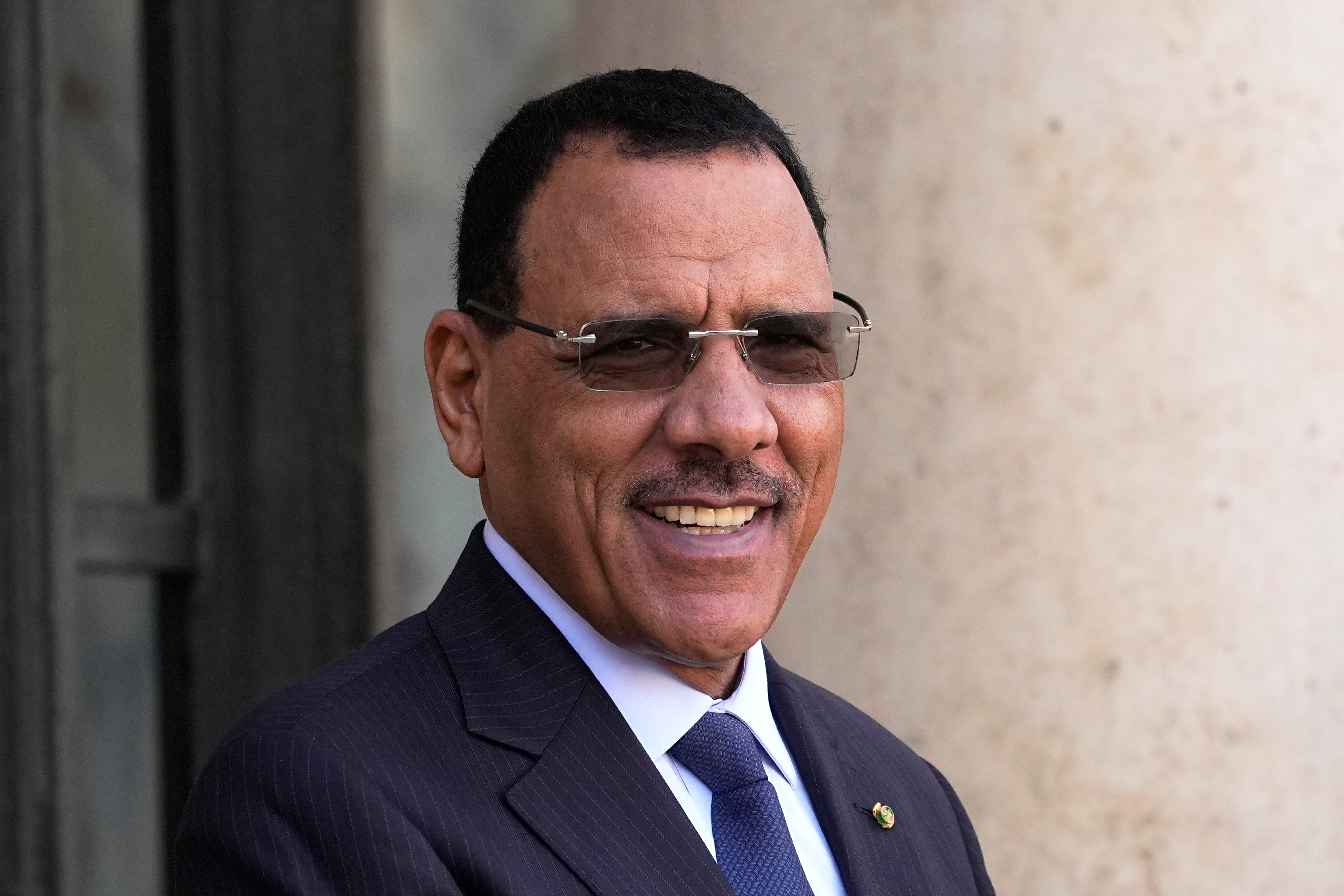The US declares the ousting of Niger's president a coup and suspends military aid and training
The U.S. has officially declared the ouster of Niger’s democratically-elected president a coup d’etat

Your support helps us to tell the story
From reproductive rights to climate change to Big Tech, The Independent is on the ground when the story is developing. Whether it's investigating the financials of Elon Musk's pro-Trump PAC or producing our latest documentary, 'The A Word', which shines a light on the American women fighting for reproductive rights, we know how important it is to parse out the facts from the messaging.
At such a critical moment in US history, we need reporters on the ground. Your donation allows us to keep sending journalists to speak to both sides of the story.
The Independent is trusted by Americans across the entire political spectrum. And unlike many other quality news outlets, we choose not to lock Americans out of our reporting and analysis with paywalls. We believe quality journalism should be available to everyone, paid for by those who can afford it.
Your support makes all the difference.The United States on Tuesday formally declared the ousting of Niger's democratically-elected president a coup d'etat, more than two months after mutinous soldiers seized power.
Senior administration officials told reporters that the U.S. was taking action after exhausting all avenues to preserve constitutional order in the West African nation, including urging the military leaders to restore civilian rule within four months in compliance with the constitution. The coup designation comes with the suspension of counterterrorism assistance and military training as well as the pausing of certain foreign assistance programs worth hundreds of millions of dollars.
“As time has passed it’s become clear that the (junta) officials that we’ve been dealing with did not want to abide by these constitutional guidelines and in fact they've told us that they’ve chosen to repeal that constitution and are in the process of creating a new draft with an uncertain timeline,” said the officials, who spoke on the condition of anonymity to discuss sensitive issues.
U.S. Ambassador to Niger Kathleen FitzGibbon remains in the country and has been in contact with the military junta, called the National Council for the Safeguard of the Homeland, or CNSP, to address U.S. staff protection and logistical needs.
Any resumption of suspended assistance will require action by the CNSP to usher in democratic rule in a quick and credible timeframe and the release of ousted President Mohamed Bazoum who’s been under house arrest with his wife and son since July, the administration officials said.
In August, Niger's military rulers said they would restore constitutional order within three years and would decide on the country's roadmap through the results from a national dialogue. They haven't specified when Bazoum and his family will be released.
Under U.S. law, a formal determination of a coup — the unconstitutional overthrow of a democratically elected government — typically results in a suspension of all non-humanitarian assistance, particularly military aid and cooperation, to the country concerned.
The Biden administration had been delaying a coup decision because Niger plays a critical role in U.S. counterterrorism activity in Africa’s Sahel region and is seen by many countries as one of the last democratic nations in the region to partner with to counter jihadi violence linked to al-Qaida and the Islamic State group. Neighboring Burkina Faso and Mali have had two coups each since 2020.
The U.S. had made Niger its main regional outpost for wide-ranging patrols by armed drones and other counterterror operations against Islamic extremist movements that over the years have seized territory, massacred civilians and battled foreign armies. The bases are a critical part of America’s overall efforts in West Africa and Niger, hosting more than 1,000 troops in the country.
In the months since July's coup the U.S. has drawdown some of its troops and moved others from the air base near the capital Niamey, to another in Agadez about 560 miles (900 kilometers) away.
While a sizeable footprint remains in the country, those troops are not conducting either partnered training or counterterrorism missions, administration officials said, raising questions as to why they were staying.
The U.S. officials said that drone-based surveillance operations will continue and limited to force protection. Yet officials also acknowledged that troops needed to remain to monitor threats “more broadly in the region” to ensure the security vacuum in Niger doesn't create an opportunity for terrorist cells to exploit.
While the coup declaration comes with consequences, it reflects the reality of the situation, which indicates that the ousting of Bazoum is unlikely to be reversed, said Peter Pham, former U.S. special envoy for West Africa’s Sahel region and a distinguished fellow at the Atlantic Council.
“The question then becomes, how do we best deal with this new reality?" he said.
"Pragmatism will better serve the long-term interests of both the people of Niger and those of the United States. After all, who would likely benefit if the progress in counterterrorism and development cooperation of recent years was sacrificed altogether just to virtue signal? Jihadist and other malevolent actors, including geopolitical rivals and/or their proxies,” he said.
___
Mednick reported from Cotonou, Benin.